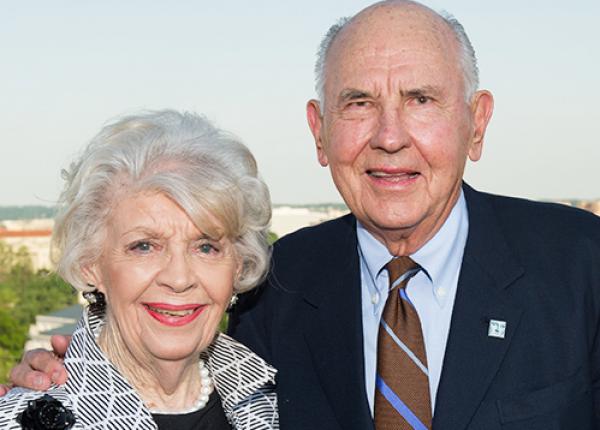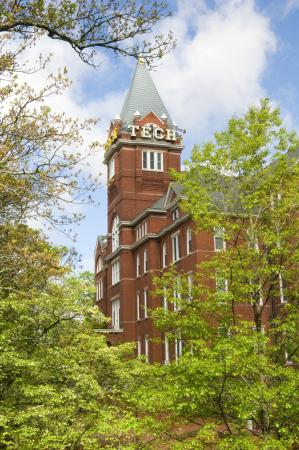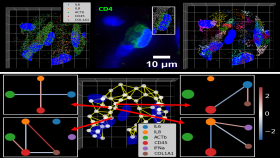Today, Georgia Tech announced that its College of Engineering has been selected to receive a $15 million endowment from the A. James & Alice B. Clark Foundation. The investment will establish the A. James Clark Scholars Program in the College of Engineering, which will support incoming students who exhibit strong academic potential, leadership skills and financial need. The Clark Foundation gift is the largest endowment gift for scholarship support that the College of Engineering has ever received.
"The Clark Scholars Program will have a huge impact on our ability to attract the best and brightest young minds to the College of Engineering and will further cultivate an inclusive and diverse student body,” said Steve McLaughlin, dean and Southern Company chair of the College of Engineering at Georgia Tech. “The entrepreneurial spirit, community-minded values, and continuous strive to achieve excellence that is encouraged by the A. James Clark Scholars Program aligns perfectly with the mission of the College."
Ten students per year will be selected as Clark Scholars based on their financial need, academic accomplishments, engagement in engineering and leadership skills. By fall 2021, the Clark Scholars Program is expected to have 40 students enrolled. Throughout their four years in the program, the Clark Scholars will pursue a rigorous engineering education, enroll in business classes, participate in intensive summer programs, and work on semester-long community service projects.
“We hope to enable motivated and promising students to focus their efforts on academic excellence and a passion for engineering,” said David Torello, faculty mentor of the Georgia Tech Clark Scholars Program. “We expect the program to develop a group of gifted graduates ready to tackle the challenges facing today’s world and establish themselves as leaders in the field of engineering.”
The program honors the legacy of the late A. James Clark, a noted engineer, businessman and philanthropist who never forgot that his business successes began with an engineering scholarship. That is why the Clark family has long supported extending engineering education to talented students from underrepresented backgrounds, including first-generation college students. Mr. Clark was the president and CEO of Clark Construction, a Maryland-based firm with a national reach.
“We are honored to have the opportunity to establish the A. James Clark Scholars Program at Georgia Tech,” said Joe Del Guercio, president and CEO of the A. James & Alice B. Clark Foundation. “With a focus on underrepresented students, the core curriculum includes a rigorous engineering and business course of study, as well as leadership and community service activities – which reflects Mr. Clark’s values as a businessman and philanthropist.”
“The generous endowment from the A. James & Alice B. Clark Foundation will provide the financial support needed for hundreds of promising students to achieve their dreams,” said G.P. “Bud” Peterson, president of Georgia Tech. “It will impact not only the lives of these students, but the lives of students for generations to come. At Tech, we are creating the next generation of engineers and ensuring that students with the passion and mindset to do great things have a seat at the table.”
Media Contact
Latest BME News
Commercialization program in Coulter BME announces project teams who will receive support to get their research to market.
Courses in the Wallace H. Coulter Department of Biomedical Engineering are being reformatted to incorporate AI and machine learning so students are prepared for a data-driven biotech sector.
Influenced by her mother's journey in engineering, Sriya Surapaneni hopes to inspire other young women in the field.
Coulter BME Professor Earns Tenure, Eyes Future of Innovation in Health and Medicine
The grant will fund the development of cutting-edge technology that could detect colorectal cancer through a simple breath test
The surgical support device landed Coulter BME its 4th consecutive win for the College of Engineering competition.
New research from Georgia Tech helps doctors predict how therapies will interact with a child's immune system, potentially improving outcomes and reducing risks.









